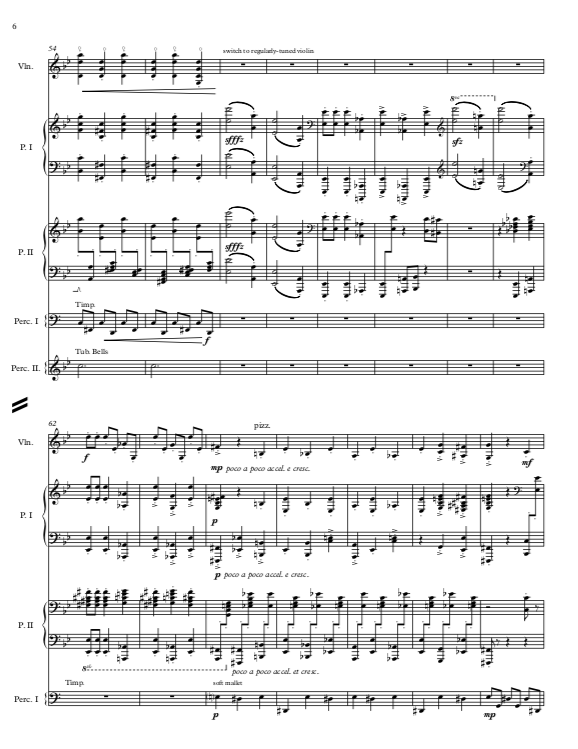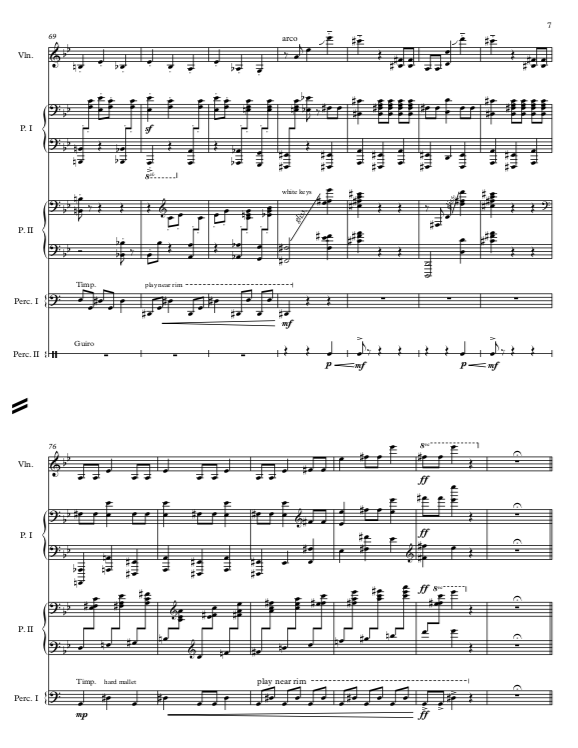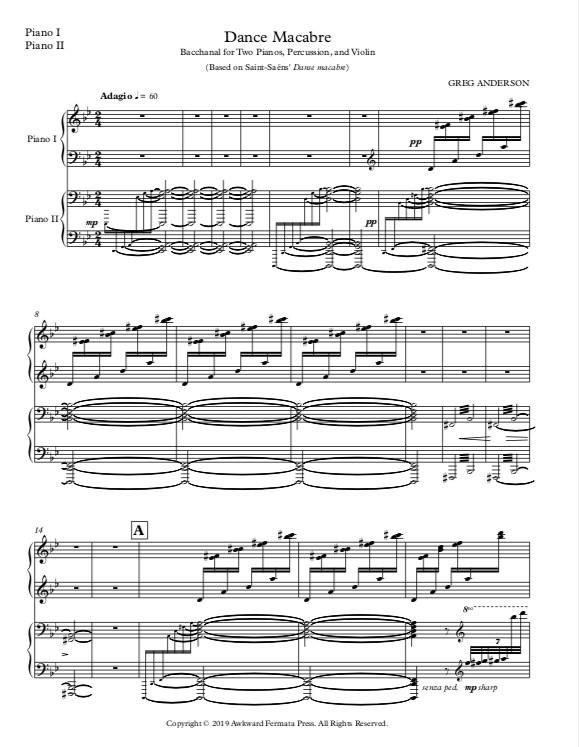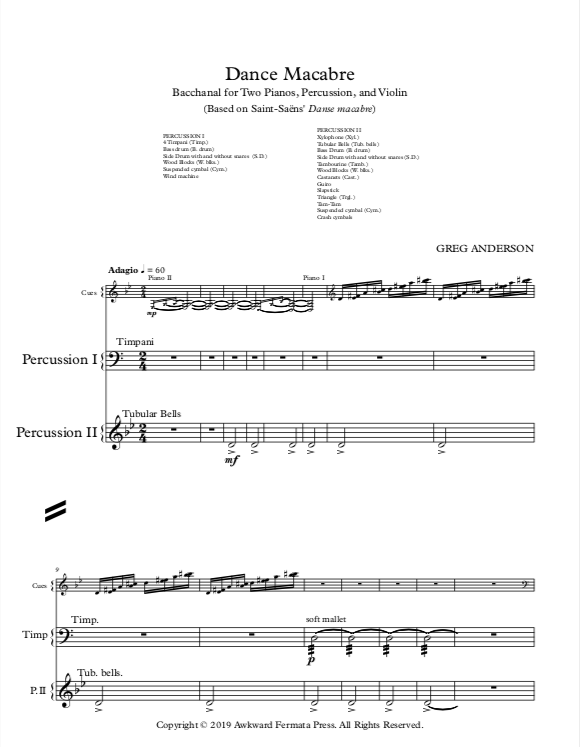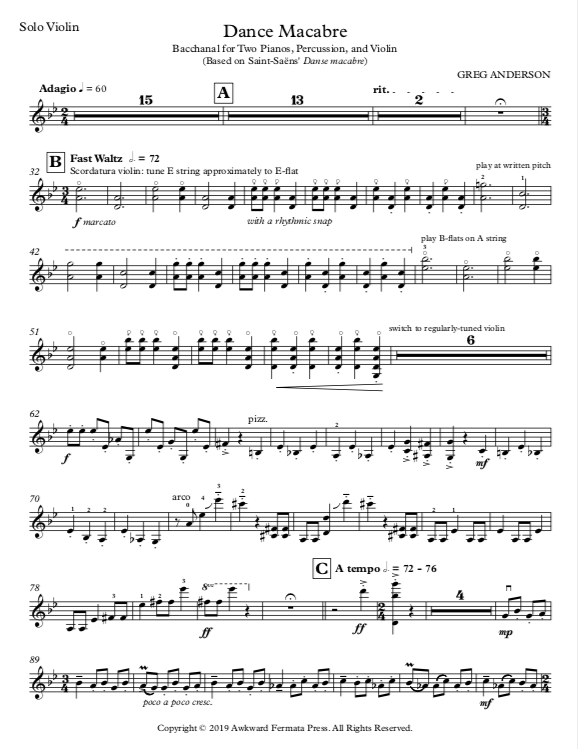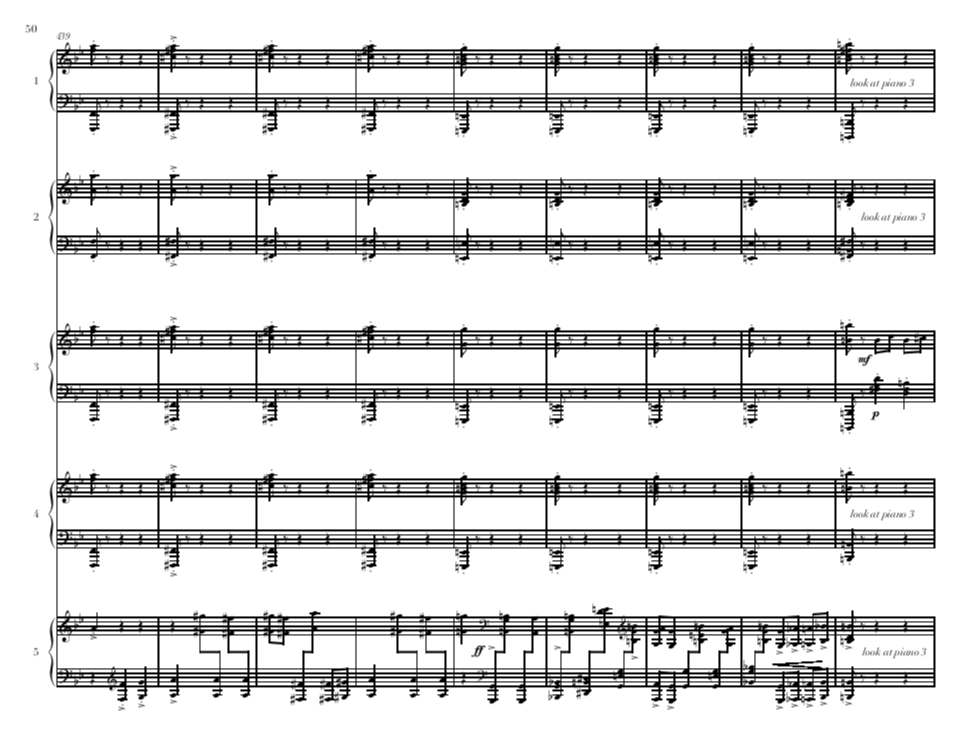Dance Macabre: Bacchanal for Two Pianos, Percussion, & Violin
(based on Saint-Saëns' Danse macabre)
arranged by Greg Anderson
advanced
Use coupon code “25percent” to save 25% on orders of $50 or more.
DANSE MACABRE
BACCHANAL FOR TWO PIANOS PERCUSSION & VIOLIN
by Greg Anderson
(based on Saint-Saëns' Danse macabre)
An emperor, a beggar, a monk, a mother, a musician... No matter one’s station in life, the dance of death unites us all. Can we, the living, dance with the same unbridled revelry as these white skeletons who pass through the gloom? How fragile life is, how vain its earthly glories...
Danse macabre, the third of Saint-Saëns’s four symphonic poems, was premiered in 1874. The broad waltz theme in the Danse macabre may be recognized as a variation on the Dies Irae, the ancient liturgical chant for the dead. While the Danse macabre is Saint-Saëns’s most frequently performed orchestral work, it was not originally conceived in orchestral terms. Saint-Saëns adapted it from one of his songs for voice and piano. The song was originally set to a verse by French poet Henri Cazalis (translated in English below):
Zig, zig, zig, Death in a cadence,
Striking with his heel a tomb,
Death at midnight plays a dance-tune,
Zig, zig, zig, on his violin.
The winter wind blows and the night is dark;
Moans are heard in the linden trees.
Through the gloom, white skeletons pass,
Running and leaping in their shrouds.
Zig, zig, zig, each one is frisking,
The bones of the dancers are heard to crack—
But hist! of a sudden they quit the round,
They push forward, they fly; the cock has crowed.
With vividness and verve, Saint-Saëns depicts the fantastic tale of Death’s frenzied dance. The work begins with the tolling of midnight bells, after which Death, portrayed as a fiddler, tunes up and commences his waltz. A second theme evokes the roused skeletal celebrants who become increasingly energetic until, with the cock's crow, they disperse and vanish.
The musical material in Saint-Saëns' Danse macabre has proven to be ideal for multiple piano treatment, and to date, we have created no fewer than seven different compositions based on the original score. In all iterations, we exploit the capabilities of the piano, illustrating the atmosphere through swirling harmonic figurations and the rattling of bones through percussive rhythms and effects.
Additionally, the four "bacchanal" arrangements feature an extended hootenanny in which the instrumentalists playfully take turns demonstrating their pianistic prowess. In the “Bacchanal for two pianos, percussion, and violin,” the musicians take on a variety of theatrical roles, from the living to the dead. The violinist serves as the resident “Death” in the ensemble and must execute seven lightning-fast violin changes, while the percussionists tackle no fewer than 18 percussion instruments. In composing this wild ensemble work, we were inspired by Bartok’s Sonata for Two Pianos and Percussion, and hints of Bartok’s token “night music,” funkified rhythms, and folksy mayhem can be found throughout.
— Greg Anderson & Elizabeth Joy Roe
“Hootenanny:
1. a social gathering or informal concert featuring folk singing and, sometimes, dancing. 2. an informal session at which folk singers and instrumentalists perform for their own enjoyment.”
See also:
Danse Macabre: remix
(also known as Fossil Jamboree)
by Camille Saint-Saëns
arranged for two pianos by Anderson & Roe
advanced
"Danse Macabre Remix" is INCLUDED ON THE ALBUM REIMAGINE
Dance Macabre: Hootenanny for Five Pianos
(based on Saint-Saëns' Danse macabre)
arranged for five pianos by Greg Anderson
advanced


